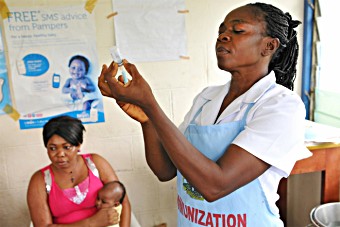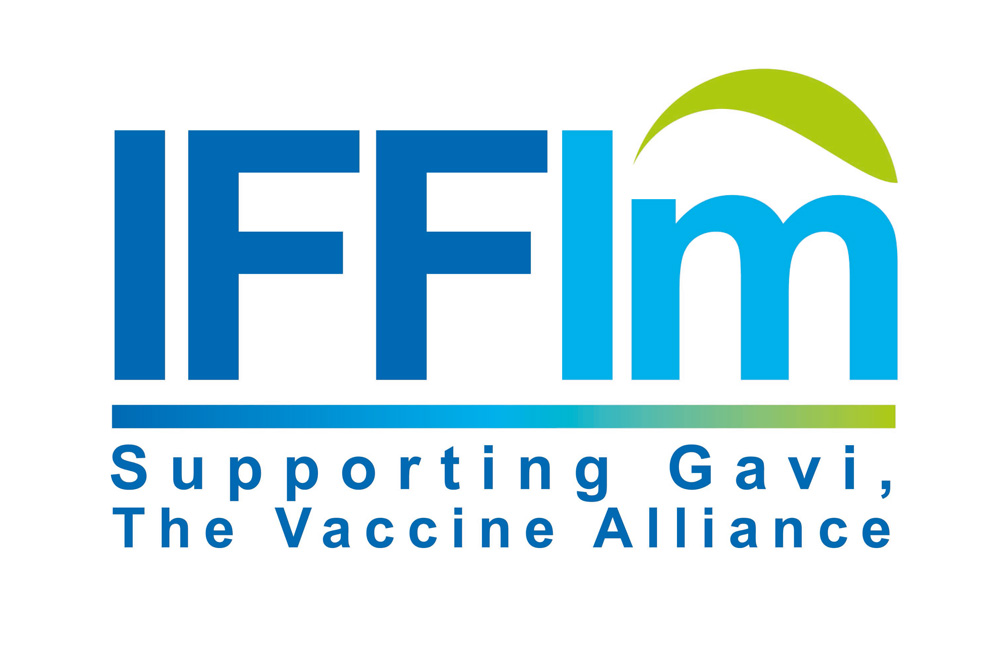How Japanese investors primed a global market for vaccine bonds
How Japanese investors primed a global market for vaccine bonds
29 August 2019

Credit: Gavi/2013/Alan Brooks.
From an acclaimed debut Uridashi to the latest investment by Dai-ichi Life, Japanese investors set a trend for socially responsible investing
Leaders from the global health community are convening this week at the Seventh Tokyo International Conference on African Development (TICAD), where Gavi, the Vaccine Alliance is unveiling its Investment Opportunity detailing the plans for the 2021 to 2025 strategic period.
It’s an apt location for this discussion, because public and private investors in Japan have been among the first and most enthusiastic supporters of immunisation. From Dai-ichi Life’s recent purchase of social bonds to fund the development of new vaccines against deadly diseases, back to the very first household investor to purchase Uridashi vaccine bonds via IFFIm, Japanese investors have led the way funding causes through socially responsible investments, or SRIs, like IFFIm.
Dai-ichi Life invests in CEPI, funding new vaccines
IFFIm has inspired the Japanese investor base to become the most enthusiastic supporter of socially responsible investments anywhere.
EuroWeek Magazine
Immunisation is the world’s most universal, cost-effective health intervention, but there are still diseases for which there is no effective vaccine. Now, with the help of institutional investors like Dai-ichi Life, work to develop those vaccines is underway.
IFFIm’s latest Vaccine Bond issuance in July 2019 raised NOK600 million in immediate funding for the Coalition of Epidemic Preparedness Innovations (CEPI), a public private initiative that accelerates development of vaccines against emerging infectious diseases and enables equitable access to these vaccines during outbreaks. Dai-ichi Life purchased 73% of the issue, becoming its biggest investor and the first institutional investor in vaccine bonds from Japan.
Looking to the future, IFFIm’s support for CEPI will yield dividends in the form of new vaccines for deadly epidemics and diseases.
Individual investors in Japan flocked to IFFIm’s Uridashi
Long before institutional investors got interested in SRIs, Japanese households had a stake in Gavi’s success from the very first retail issuance, or Uridashi, in 2008. Purchasing vaccine bonds at their local bank branch, mom and pop investors adopted the concept of “investing for good” and helped IFFIm grow as a leader in socially responsible investing.
Uridashi are bonds sold to Japanese household investors. They are denominated in a foreign currency, for example Australian dollars, that can provide investors with a higher rate of return. Retail investors have flocked to socially responsible Uridashi, increasing recognition of SRIs in Asia and throughout the world.
IFFIm’s inaugural Uridashi brought the term “Vaccine Bonds” to public attention. They were first sold by IFFIm to individual investors in 2008 to great acclaim — an early indicator that social bonds were on the rise around the world.
IFFIm’s first Uridashi was also the first issuance to gain traction in Asian markets, making international headlines with a successful retail offering which raised US$ 222.8 million in immediate funding for Gavi’s immunisation programmes. The issuance was so successful, EuroWeek magazine cited the transaction as among the 25 most influential deals, helping set a trend of ethically themed bonds sold in Japan.
“IFFIm has inspired the Japanese investor base to become the most enthusiastic supporter of socially responsible investments anywhere,” EuroWeek’s 25th anniversary edition noted.
A “great story” for investors
IFFIm’s Uridashi bond issuance to fund Gavi took place long before SRIs became popular in Japan. Momentum started when Japan’s Government Pension Investment Fund (GPIF) began to insist on investment in companies respecting the socially conscious investment criteria.
IFFIm anticipated this trend, and the concept of Vaccine Bonds as a social value investment took off.
“Individuals, many older women from modest households were interested in what vaccine bonds could do. People could buy bonds at their local bank branch where there were posters of children getting vaccinated hanging on the walls,” said Christopher Egerton-Warburton, Partner, Lions Head Global Partners, and one of IFFIm’s former board members. “Banks started noticing that people wanted this story.”
The Uridashi success illustrates the power of a great story to compel people to invest. These Vaccine Bonds were appealing not just because of their stable rate of return, but also because they gave investors a direct way to impact global health: saving children’s lives.
Japanese banks and other Asian financial institutions are powering IFFIm Uridashi issuances:
March 2008
- US$ 223 million arranged by Daiwa Securities Group
February 2008
- US$ 429 million arranged by Daiwa Securities Group
May 2009
- US$142.9 million arranged by Mitsubishi UFJ Securities Co., Ltd
June 2009
- US$ 130 million arranged by HSBC Securities (Japan)
March 2010
- US$320.5 million arranged by Daiwa Securities Group
June 2010
- US$ 101 million arranged by HSBC Securities (Japan)
March 2011
- US$ 225 million arranged by Daiwa Securities Group
September 2011
- US$ 169.4 million arranged by J.P. Morgan
Summer 2012
- US$ 98.4 million arranged by HSBC Securities
- US$ 38.76 million arranged by J.P. Morgan
March 2013
- US$ 139 million arranged by Daiwa Securities Group
Share this article
Restricted Access Library
 The material in this Restricted Access Library is intended to be accessed only by persons with residence within the territory of a Member State of the European Union and is not intended to be viewed by any other persons. The material in this Restricted Access Library is provided by IFFIm for information purposes only and the materials contained herein were accurate only as of their respective dates. Certain information in the materials contained herein is not intended to be, and is not, current. IFFIm accepts no obligation to update any material contained herein.
The material in this Restricted Access Library is intended to be accessed only by persons with residence within the territory of a Member State of the European Union and is not intended to be viewed by any other persons. The material in this Restricted Access Library is provided by IFFIm for information purposes only and the materials contained herein were accurate only as of their respective dates. Certain information in the materials contained herein is not intended to be, and is not, current. IFFIm accepts no obligation to update any material contained herein.
Persons with residence outside the territory of a Member State of the European Union who have access to or consult any materials posted in this Restricted Access Library should refrain from any action in respect of the securities referred to in such materials and are otherwise required to comply with all applicable laws and regulations in their country of residence.
By clicking Access restricted content: DYNAMIC-LINK-TEXT I confirm that I have read and understood the foregoing and agree that I will be bound by the restrictions and conditions set forth on this page.
The materials in this Restricted Access Library are for distribution only to persons who are not a "retail client" within the meaning of section 761G of the Corporations Act 2001 of Australia and are also sophisticated investors, professional investors or other investors in respect of whom disclosure is not required under Part 6D.2 of the Corporations Act 2001 of Australia and, in all cases, in such circumstances as may be permitted by applicable law in any jurisdiction in which an investor may be located.
The materials in this Restricted Access Library and any documents linked from it are not for access or distribution in any jurisdiction where such access or distribution would be illegal. All of the securities referred to in this Restricted Access Library and in the linked documents have been sold and delivered. The information contained herein and therein does not constitute an offer for sale in the United States or in any other country. The securities described herein and therein have not been, and will not be, registered under the U.S. Securities Act of 1933, as amended (the "Securities Act"), and may not be offered or sold in the United States except pursuant to an exemption from, or in a transaction not subject to, the registration requirements of the Securities Act and in compliance with any applicable state securities laws.
Each person accessing the Restricted Access Library confirms that they are a person who is entitled to do so under all applicable laws, regulations and directives in all applicable jurisdictions. Neither IFFIm nor any of their directors, employees, agents or advisers accepts any liability whatsoever for any loss (including, without limitation, any liability arising from any fault or negligence on the part of IFFIm or its respective directors, employees, agents or advisers) arising from access to Restricted Access Library by any person not entitled to do so.
"Relief" for mothers in Bayelsa state as malaria vaccine makes waves
07 November 2025
